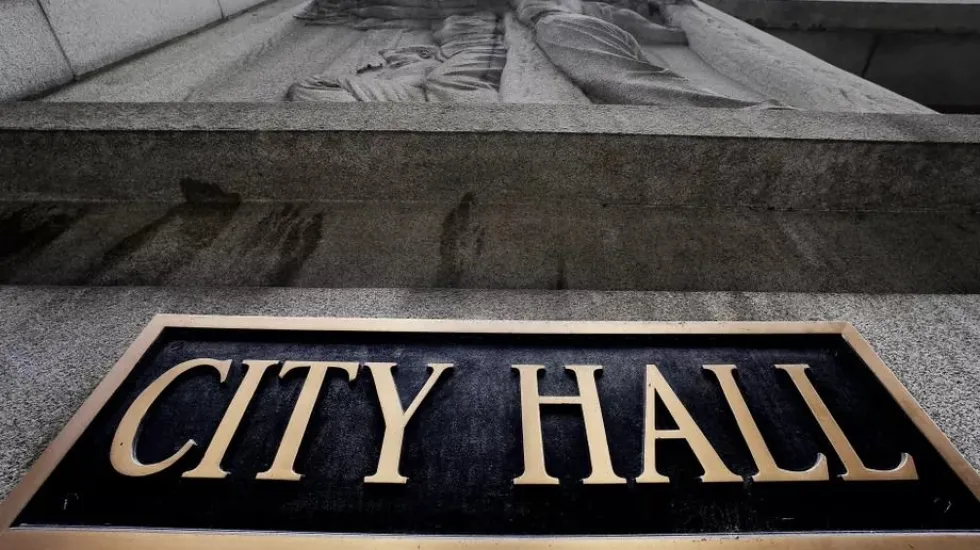
With the City Council’s Black and Latino caucuses at loggerheads over new ward boundaries, the chairman of the Rules Committee is throwing in the towel on negotiations.
Ald. Michelle Harris (8th) on Tuesday plans to do what the Latino Caucus did in December: petition the city clerk’s office for a referendum on the Black Caucus’ version of a new ward map.
The map is backed by 33 alderpersons, eight short of the 41 needed to avoid a referendum. It was drawn for the Rules Committee and the Black Caucus by Mike Kasper, who spent decades as election law expert for now-deposed-and-indicted Illinois House Speaker Michael Madigan.
It includes 14 majority Hispanic wards and preserves 17 African American wards, including one with a Black plurality.
The major roadblock to a deal between the Black and Latino Caucuses is the demand for a 15th majority-Hispanic ward.
After leaving two Hispanic majority wards on the table 10 years ago at the behest of then-Mayor Rahm Emanuel, the Latino Caucus won’t settle for less.
Chicago voters likely will now decide between the Black Caucus map and the Latino Caucus map, which has 15 majority-Hispanic wards — two more than now, based on a 5.2% increase in Chicago’s Hispanic population.
In the 2020 census, the city’s Hispanic population increased, while its Black population declined.
“I have to do what I have to do for the group of aldermen that are with us. … We’re taking it to the voters and we’re gonna let the voters decide,” said Harris, who doubles as Mayor Lori Lightfoot’s floor leader.
“Without 41 people making a decision to move forward, how do we avoid going to referendum? … The Latino Caucus stopped negotiating weeks ago.”
Ald. Gilbert Villegas (36th), Latino Caucus chairman, was unfazed by the latest maneuver in the once-a-decade game of political chicken.
“This means that the people of Chicago will decide reapportionment for the next decade-plus, which is not a bad thing,” Villegas said.
“We’ll win it because of the fact that our message is gonna be about fairness, transparency, no backroom deals. … Communities want to stay intact. People are tired of elected officials selecting their voters, instead of voters selecting their elected officials.”
For months, Harris has warned Chicago’s first remap referendum in 30 years would cost taxpayers upwards of $40 million.
Villegas has called that a “scare tactic,” arguing the real cost is, at most, 20-cents-a-voter.
On Monday, Harris stood by the $40 million figure, since the “losing side will file lawsuits. … It’s just what happens when you go to referendum and you take it to the people. The losers will always feel that they got cheated or whatever.”
Last month, the Latino Caucus forged an alliance with the CHANGE Illinois Action Fund that could make it easier to attract voter support.
One week later, Villegas said negotiations had stopped, and he was “1,000 percent certain” the issue was headed for a referendum on June 28.
Villegas on Monday accused the Rules Committee of refusing to allow the Latino Caucus to make 10 changes to accommodate CHANGE Illinois’ demand to keep “key communities from being significantly splintered.”
Those changes include keeping Englewood in two wards, instead of six or seven, and keeping Washington Park in the same ward as Woodlawn. They change some boundaries in six other wards to align with the map drawn by the CHANGE Illinois commission.
“By not allowing us to do that, they’ve told CHANGE Illinois, `Your input is not welcome here.’ This is going to make us work even harder together,” Villegas said.
Aviation Committee OKs O’Hare land deal
Also on Monday, the City Council’s Aviation Committee signed off on a $107.8 million deal paving the way for transferring 202 acres of city-owned land at O’Hare International Airport to be used for the western access road that’s been talked about for 30 years, but never delivered.
In addition to a gravy train of jobs and contracts, Aviation Commissioner Jamie Rhee said western access will ease airport traffic jams by creating a “back door” to O’Hare.
“Those individuals that are just trying to merely bypass O’Hare and get onto that southern leg of 294 will now have an alternate. They can go the west side, instead of clogging our entrance, which is one way in and one way out of O’Hare off I-190,” she said.







